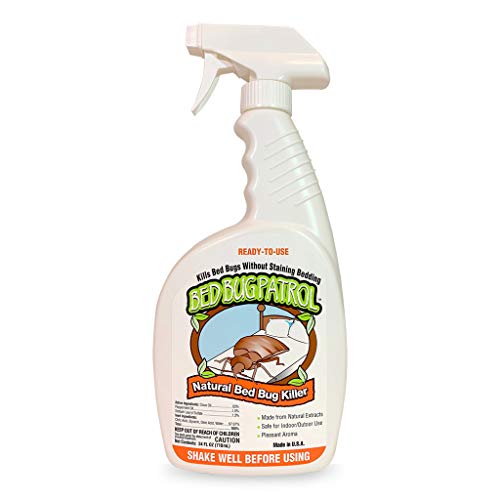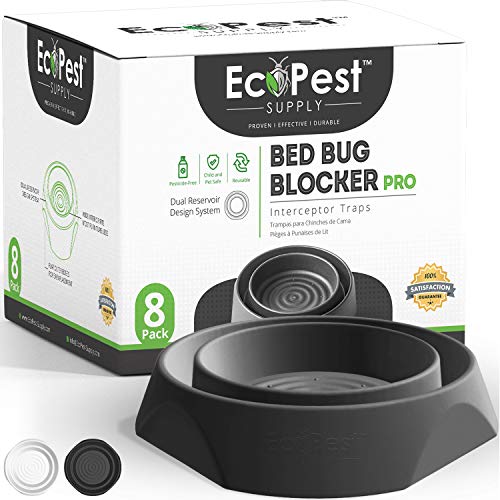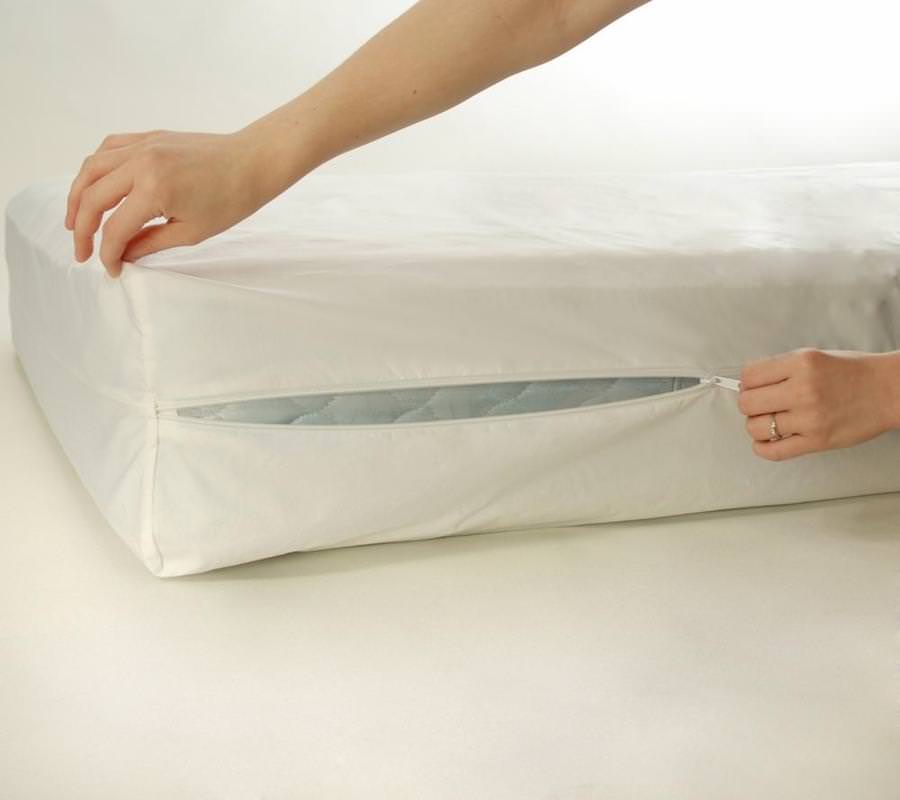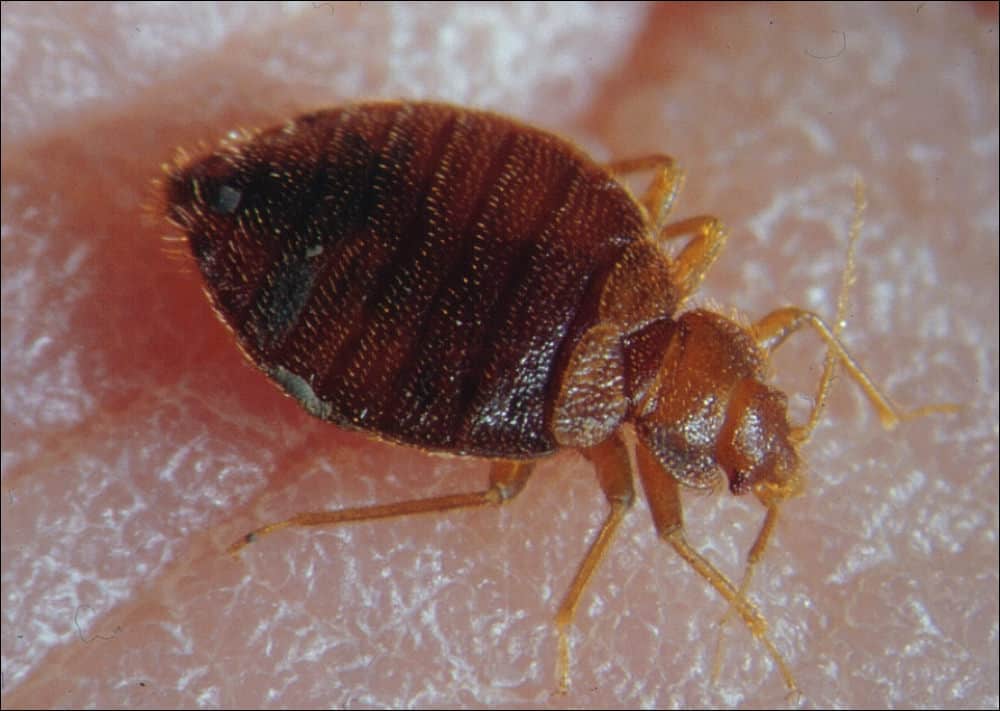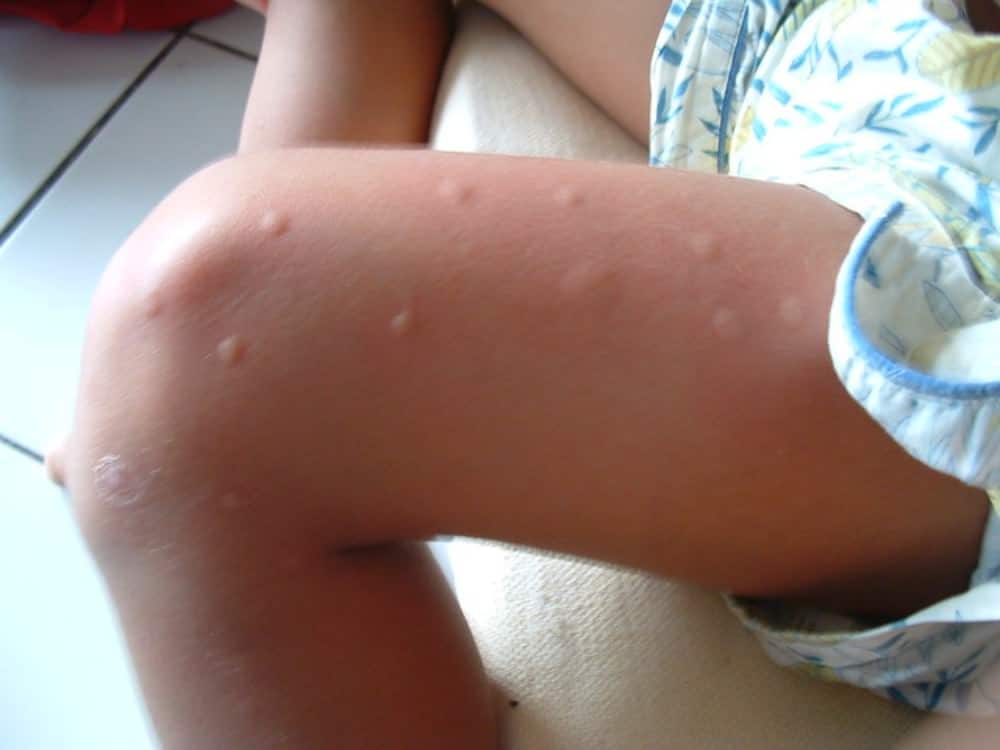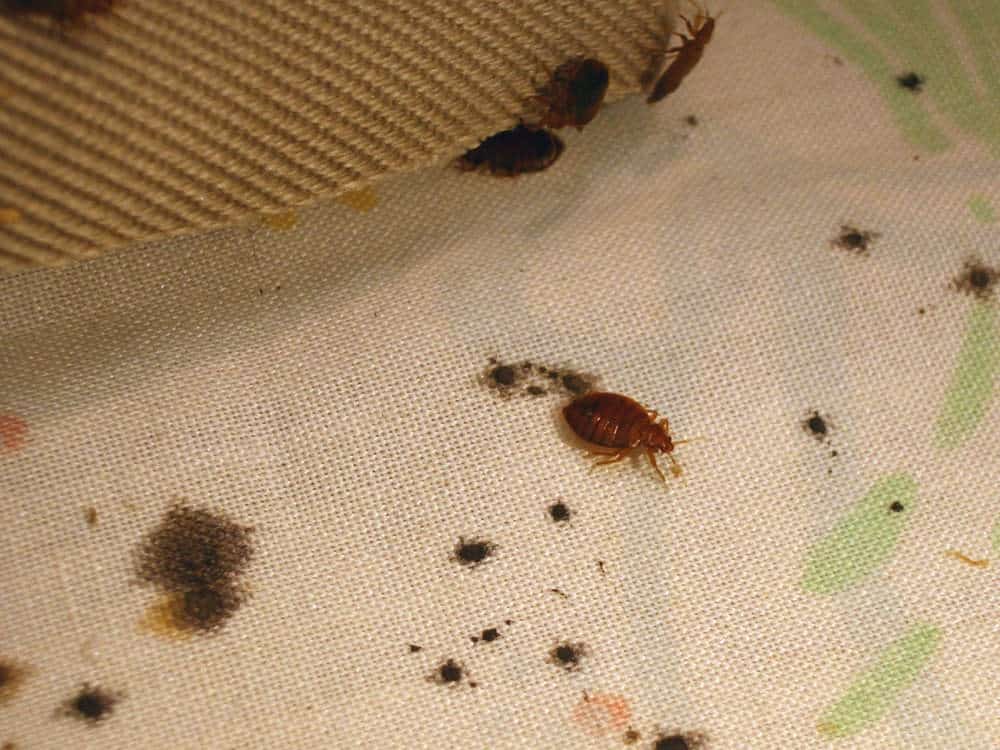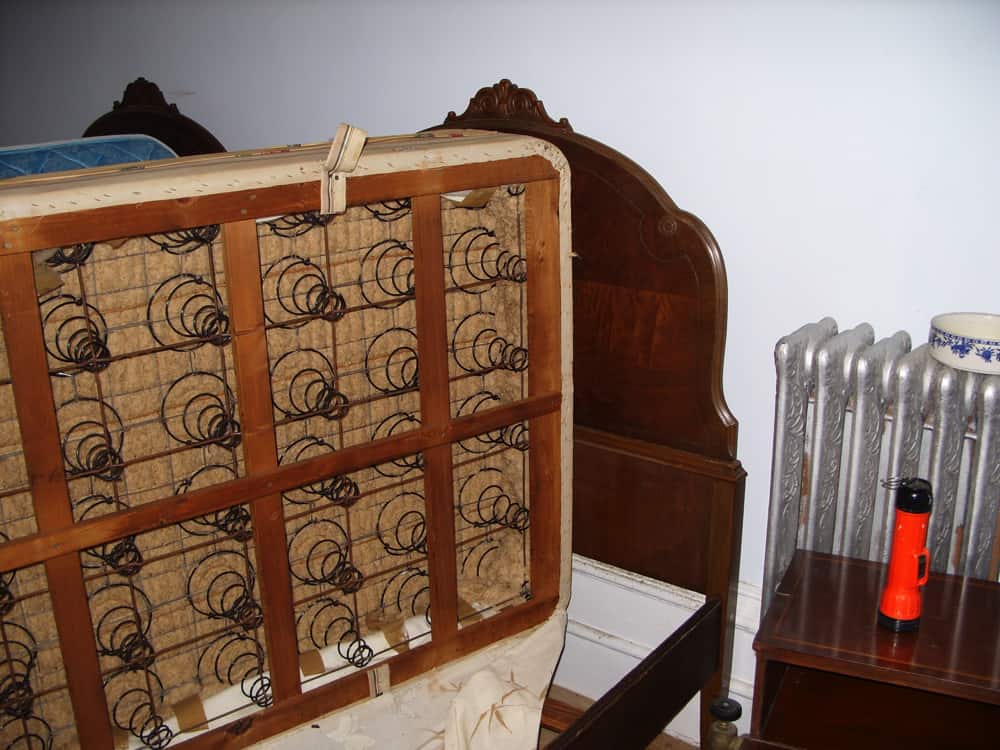How Long Do Bed Bugs Survive Without A Host?
Many people suffering from a bed bug infestation hold the mistaken belief that you can just starve out the pests. Maybe you can go on a long vacation or live with a relative for a month, and when you get back, your home will be bed bug-free because they had no one to suck blood from.
In fact, you’d be surprised to know how long bed bugs can live without a host. That’s exactly what you’ll learn about in this article.
How Long Can Bed Bugs Live Without Feeding On A Host?
You already know that if no blood is available, there is nothing else a bed bug can eat to survive. What you may not realize is that these pests can live for a really long time without eating. The amount of time depends upon the environment the insect is in, but they can even live outside for considerable lengths of time.
In cooler temperatures, some bed bugs can survive a year or more without a meal. Living without a host, however, does prevent nymphs from reaching adulthood on their normal schedule. Under normal circumstances, bed bug nymphs become adults within about 5 weeks or so. Without a host, however, they are weaker than fully mature bed bugs, and are more likely to starve to death.
In warmer temperatures, a bed bug will still survive a couple of months without a meal. That means that even if you leave your house for a couple of weeks, the bed bugs will still be there when you get back. Survival times do drop significantly with increased temperatures.
Bed bugs have developed an interesting survival mechanism for preventing starvation. Their bodies go into a type of hibernation, which is why colder temperatures work better at long periods of fasting. Additionally, the bugs generate a “hunger bubble” in their abdomens. This fills up the space where a meal would normally go and helps them to endure hunger.
Do Bed Bugs Only Feed On Human Hosts?
This one’s a bit tricky. Bed bugs have a strong preference for human hosts, but do they only feed on human hosts? No. The truth is that if no human blood source is available, bed bugs will feed on another host.
Indeed, this is probably how bed bugs survived during the years that they were pushed back out of homes with chemical insecticides. Don’t think you can just blast your home with chemicals to get rid of these pests now, though.
Modern bed bugs have developed resistance to almost all known insecticide agents.
Can bed bugs eat anything other than blood?
You may be wondering, if a bed bug doesn’t necessarily need a human host, can it survive on something other than blood? The answer to that question is no. The only thing a bed bug can use for nourishment is blood. Its mouth and body are specifically equipped for ingesting and processing blood for nutrition.
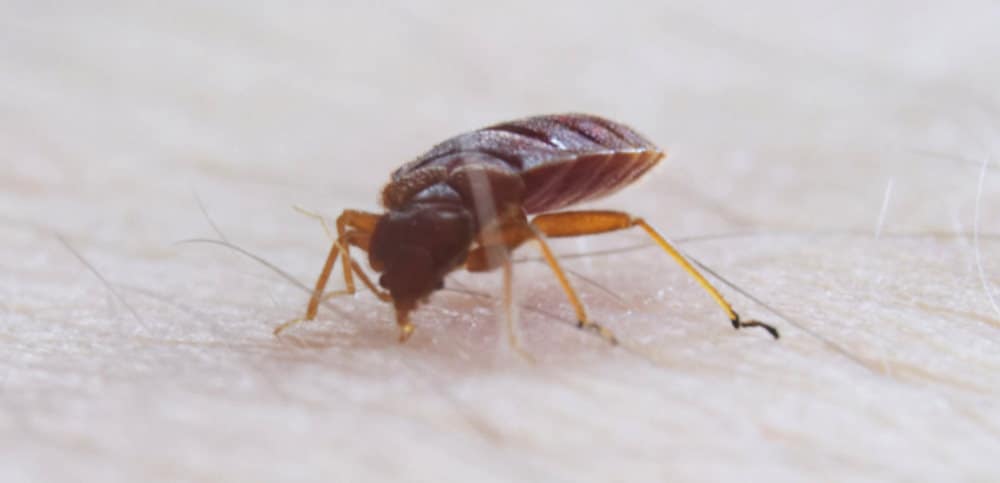
That’s why you won’t typically find bed bugs in the kitchen or bathroom, unlike ants, cockroaches, or other pests. They have nothing to eat in these rooms. They will not try to swarm the crumbs you left on the kitchen counter.
How Often Do Bed Bugs Usually Feed On A Host?
Unlike some other insects that survive on blood, like fleas, bed bugs tend to feed on any available host. Fleas prefer to feed on only one person. Rather than jumping from host to host, they will stick with the host their colony lives on. Of course, they do eventually spread, as a host becomes overpopulated.
Bed bugs, on the other hand, do not live on their hosts, and so they do not share this attachment. Instead, they live in hiding places like under mattresses and in the crevices around baseboards.
When they come out of hiding (usually at night), they are not looking for a particular person. They are looking for the generalised body heat and the carbon dioxide that we breathe out. This is the way they’re able to scope out their prey.
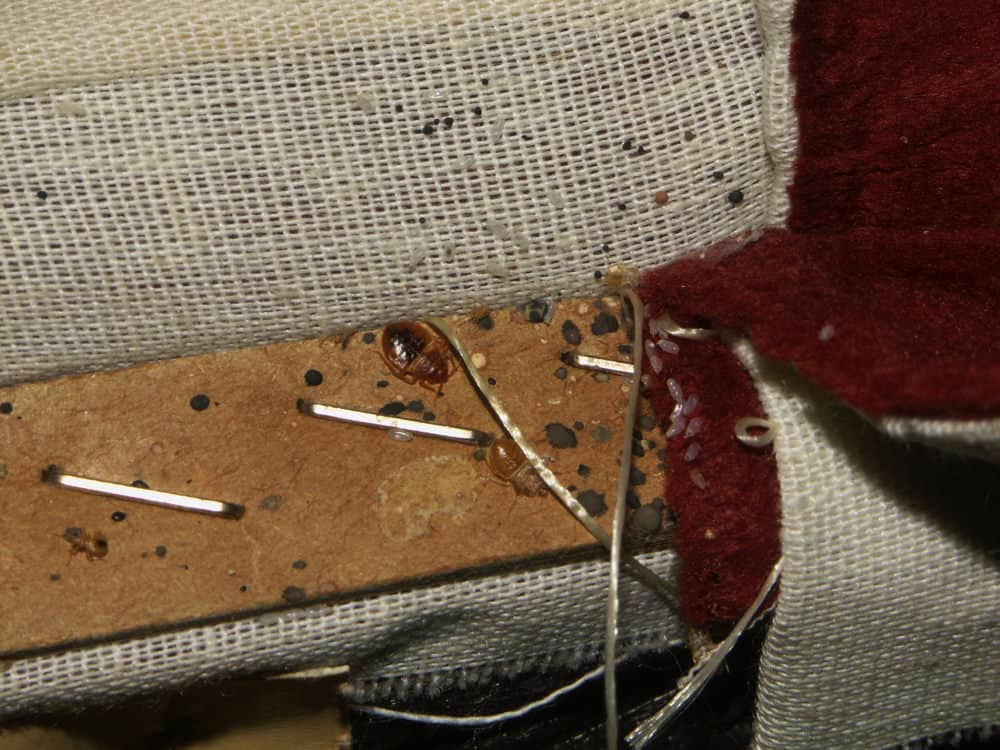
That is how they find a host for feeding.
Most bed bugs feed about once a week. Don’t think that means you’re only going to get bitten once a week though. A full infestation contains thousands of individual insects. Each of those bed bugs needs to feed once per week, which means that you’re likely to get bitten every night by multiple bugs if you have an infestation.
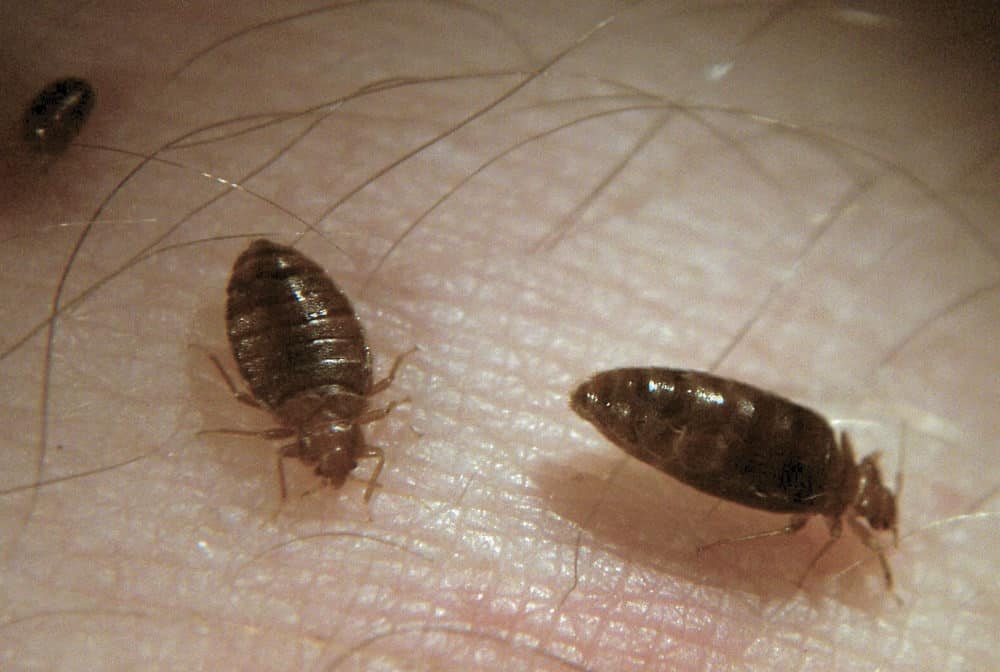
The good news is that bed bugs are not known to have ever transmitted disease to a human host. The bad news is that you will probably develop some seriously itchy skin.
A lot of people are grossed out by the idea of bed bugs in their home, but a lot of so-called home remedies are actually more dangerous or harmful to your health than bed bug bites. Itchy skin can be treated. It’s important to find bed bug treatments that are both safe and effective, whether you are using a DIY method or hiring a professional pest management company.
My Favorite Bed Bug Treatment Products
While getting rid of bed bugs without buying any additional products can be done with very small infestations, I believe that by purchasing just a few additional products, you’ll be so much better equipped, and will be able to stamp out an infestation before it gets worse. Below is my list of essential products.
Bed Bug Patrol Bed Bug Killer – One of the best bed bug sprays that I’ve yet to personally use. Not only does it have a reported 100% kill rate against live bed bugs in controlled tests, but it’s also child and pet friendly. This product can be used against both light and heavy infestations, and most importantly, it’s laboratory tested and completely chemical-free.
Studies conducted using the treatment showed an impressive kill rate of 83% within just 30 minutes after application, and 98% within the first four hours, leading on to an eventual mortality rate of 100% over time.
SureGuard Mattress Encasement – It’s thick, durable, and is certain to help stop bed bugs of all sizes from getting to, or from, your mattress.
The protector prevents bed bug transportation by using SureSeal technology, and by using an extremely fine zipper that not even bed bug nymphs can impregnate.
In my experience, the best and most effective bed bug traps are usually the ones that are designed to work in the simplest of ways. I’ve used the Bed Bug Blocker Interceptor Traps extensively and I find they do the job better than any other trap I’ve tried. You also get a very generous 8 interceptors per pack.
Simply place them directly underneath the bed/table/chair legs you’re trying to protect, and watch the bed bugs fall into the traps time and time again with no chance of escape.
ZapBugg Bed Bug Heater – Specially designed to kill all stages in the bed bug life cycle, including eggs, without the need to purchase expensive pest control heat treatment solutions.
Simply place infested items into the ZappBug heater and it will automatically reach the all-important bed bug killing temperature, so you can be sure the items will come out free from all life stages of bed bug once the process is complete.
Large and small versions are also available.
Will Bed Bugs Feed On Other Animals If Desperate?
Bed bugs are part of a group of similar insects of the genus Cimex. The scientific name for a bed bug is Cimex lectularius. There are other insects in the Cimex genus, such as Cimex adjunctus, the bat bug.
Bat bugs are quite similar to bed bugs, except that, as you may have guessed, they prefer to feed on bats rather than humans. That doesn’t mean you won’t find them in your house. They commonly infest attics where bats have made their home.
Each member of this insect genus, like bed bugs and bat bugs, prefers specific types of hosts. Each one, however, will get blood however it can, usually from a mammal. Bed bugs are no exception, if they cannot find a human host, they will seek blood from another mammal to survive.
Can Bed Bugs Reproduce Without A Host To Feed On?
Bed bugs absolutely need to blood meals in order to reproduce. In the absence of a host, bed bugs may survive for quite a while, but they will stop making new eggs. Furthermore, the nymphs require blood meals in order to molt and reach the next stage of development.
Without a host available, the nymphs not only live less time than adult bed bugs, but they will not reach maturity and cannot reproduce.
A funny thing about bed bugs, and several other types of blood-feeding insects, is that they often need the blood of a particular type of host in order to reproduce. What that means for bed bugs is that they can survive without a human host, by feeding on an animal, but they cannot lay eggs and create new generations of bed bugs without a human host.
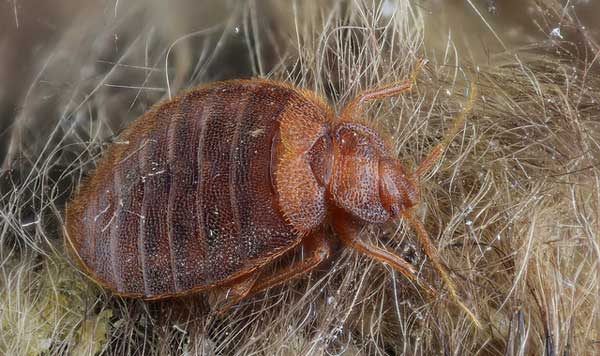
In rare cases, this information may be useful. For most people with a bed bug problem, however, the pests will find a way to survive for the long haul. That’s why it’s best to form a multifaceted pest treatment strategy. You need to get rid of the infestation, prevent any new bugs from entering the home, and keep past infestations from coming back via unhatched eggs that weren’t destroyed.
Summary
Many factors go into how long bed bugs can survive without a host, including temperature and the age of the bugs. What you know for certain, though, is that trying to wait out your bed bugs until they starve is not a viable treatment option.

